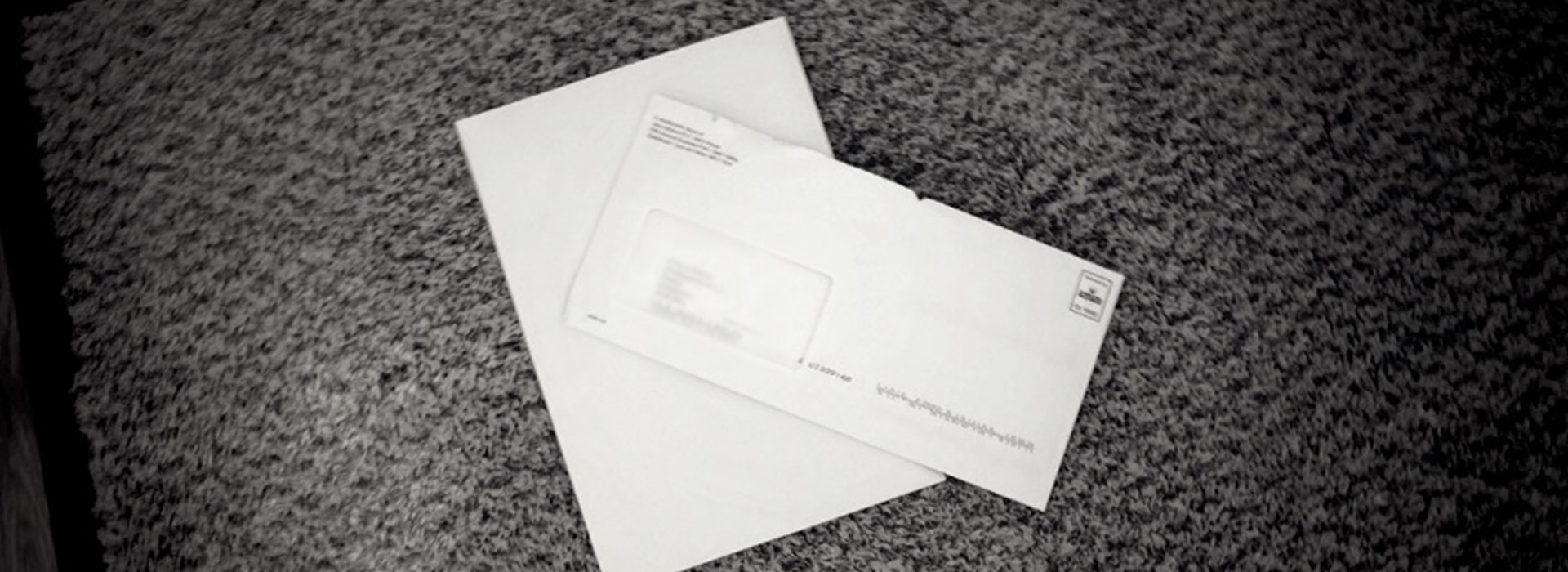Speeding concern? Any query about your speeding offence,
The Law

Received a Ticket?
What to do if you receive a speeding ticket/Notice of Intended Prosecution.
Notice of Intended Prosecution
A Notice of Intended Prosecution form is sent to the registered keeper of the vehicle within 14 days of the alleged offence. The form asks if you were the driver of the vehicle and gives you the opportunity to confirm this, or tell us whether someone else was driving, if it was a hire vehicle, if the vehicle had been sold or was owned by someone else at the time of the offence. If it was any of these, you must respond, returning your notice to us and giving us the information, so that we can continue with your options or send a new Notice of Intended Prosecution to the person/company identified.
If you fail to respond to a Notice of Intended Prosecution within the stated time limit or you fail to complete or sign the notice, then a summons can be issued for failing to furnish information and you will be required to attend a Magistrates Court.
What happens next?
If it was you driving, after we have received your completed Notice of Intended Prosecution, there are several options that may be available to you. If you are eligible, you may be offered a speed awareness course as an educational alternative to penalty points and a fine.
If you are not eligible for a speed awareness course, (because you have had one in the last three years, your speed is too high or you have not responded promptly), the next option for you may be a conditional offer of fixed penalty. This offers you the chance to pay a £100 fixed penalty fine and have your licence endorsed with three penalty points.
If you are not eligible for a conditional offer of fixed penalty (because you have more than 8 penalty points valid on your licence or your speed was too high) or you choose to contest the allegation in court, then the matter will be heard by a Magistrates Court. If they find you guilty, you may have to pay several hundred pounds in court costs, up to a maximum fine of £1,000 and possibly receive additional penalty points on your licence.
Speed Awareness
A National Speed Awareness Course is an educational alternative to a fine and penalty points being endorsed on your driving licence.
You are only eligible for a course if you have not completed one in the last three years, your speed is within the required criteria set out by ACPO. Also, you would need to complete and return your Notice of Intended Prosecution within the required 28-day time period.
Since the Covid-19 pandemic, courses have been conducted online by course providers but there are now more and more classroom courses being run for those who prefer to attend in person. The classroom courses are only available by provider discretion, and we recommend contacting a course provider by telephone to see if they have classroom courses available or not.
Online courses last between 2 hours 30 minutes – 3 hours, you must have a device with a front facing camera, a microphone and device sound. Most online courses are provided by Microsoft Teams (free to download as an app) but you must have a strong internet connection.
Classroom courses last between 3 – 4 hours and you are recommended to take a pen and paper with you.
The prices for the courses vary on the course provider but a payment plan may be available if you request from the provider. When you attend a course, you must produce suitable photographic identification such as a passport or driving licence.
There are rules when attending a course in order to complete. The trainer will decide if you have completed the course. The rules are:
- You must be completely alone, in a private location where you will not be disrupted.
- Your location must be quiet. If your location is deemed inappropriate, then you may be removed from the course by the trainer.
- If you attend a classroom course, you must bring a pen or pencil.
- If you attend an online course, you must have a device with a front facing camera, microphone, device sound and a strong internet connection.
- Virtual or blurred backgrounds are not permitted, the camera will be able to see behind you.
- With the exception of using a mobile device to attend an online course, the use of mobile devices during the course is strictly prohibited. All mobile devices must be switched to silent and stored out of sight.
- People participating in a course should conduct themselves in a respectful manner to the course trainers and others attending the course.
Failure to comply with these terms may result in you being excluded from a course.
For a full list of course providers, please click here.


Fact or Fiction
Here are a few myths around speed enforcement.
Despite a number of high profile cases, simply claiming that you "don't know who was driving" won't get you off the hook - quite the opposite actually. The Road Traffic Act states that you must disclose the details of the driver responsible for the offence, as you must know who was in control of your vehicle at any given time. Failing to supply these details could result in the case being heard at court and a large fine and up to six points being the outcome. You must also always keep your log book details up to date and notify the DVLA of any address changes. Failure to do this can also result in up to a £1,000 fine.
The crash rate doubles at night due to higher vehicle speed, more alcohol consumption, tiredness and reduced visibility. Therefore complying with speed limits is important at all times.
It is impossible to opt out of paying tax, whereas a careful driver who adheres to the law, will avoid paying a fine. Drivers breaking the law by speeding, using a mobile phone or not wearing a seatbelt, for example, whilst driving will pay. Safety cameras and camera vans are placed where they will help save lives and where there has been a significant speed and/or casualty problem.
Whilst the claim is made by several products, tests have yet to find any form of spray or cover which obscures speed camera flashes.
A particular favourite of mates down the pub, the "1p cheque" theory is one that has been around for years. The idea is that the points can only be added once all financial transactions have been completed. The offender receives a £100 fine, but sends a cheque for £100.01 so the camera partnership then send a 1p cheque back that never gets banked. The theory has been debunked and the only thing that this method is likely to achieve is an additional charge for wasting police time and attempting to pervert the course of justice.
Speed Limits
A guide to speed limits.
The most popular comment we hear is "I didn't know this was a 30mph road" or "there weren't any repeater signs stating it was a 30mph limit".
We always refer them to the Highway Code and what is refered to as "a built up area with a system of street lighting". These roads are know as 'restricted roads' and can be explained by the legislation below.
"Section 82 (1)(a)(of the Road Traffic Regulation Act 1984) defines a restricted road in England and Wales as a road which is provided with a system of street lighting furnished by means of lamps placed not more than 200 yards apart. Section 81 specifically makes it an offence for a person to drive a motor vehicle at a speed of more than 30 mph on a restricted road. As set out in paragraph 45, it is generally recognised that a 'system' of street lighting could be three or more lamps spaced not more than 183 metres apart. However, street lighting (for the purposes of determining whether or not a road is a restricted road) is not necessarily limited to street lamps, but may extend to lighting provided by authorities or parish councils."
To avoid confusion that could arise if some 30 mph zones were 'street-lit' and some were not, DfT guidance goes onto say:
"Direction 11 of The Traffic Signs Regulations and General Directions 2002 (TSRGD 2002) defines the requirements for the placing of speed limit repeater signs. This states that speed limit repeater signs cannot be placed along a road which there is carriageway lighting not more than 183 metres apart and which is subject to a 30 mph speed limit. The Department will not make exceptions to this rule".
All this may seem quite wordy and confusing, so if the area you driving in has a lot of houses and/or shops and seems built up and it has a lot of street lights and there are no repeater signs, it is best practice to drive not exceeding 30mph.
For all other speed limits for roads and different vehicles please click here.

Fatal Four
The fatal four behaviours cause death and serious injury. If you don't lose your life - you may lose your licence.
Speed
- "I was running late"
- "I thought it was a 40 limit not 30"
- "My speedo says I was only doing..... "
Drink / Drug Driving
- "I didn't realise I was over the limit”
- "It was only a spliff or two”
- "It was an emergency and I had to drive”
Seatbelts
- "I normally wear it”
- "I have only just driven off”
- "I can't wear it, it gives me neck pain”
Mobile Phones
- "I never answer it when I'm driving, but it was urgent"
- "I wasn't on it, I was just checking my messages"
- "Yes I did use my phone, but I still had both hands on the wheel”
Note: For new drivers within the first two years of passing their test, this could mean losing your licence and retaking your test. That text, call or streaming session will therefore not only be expensive but could impact your future or current employment.